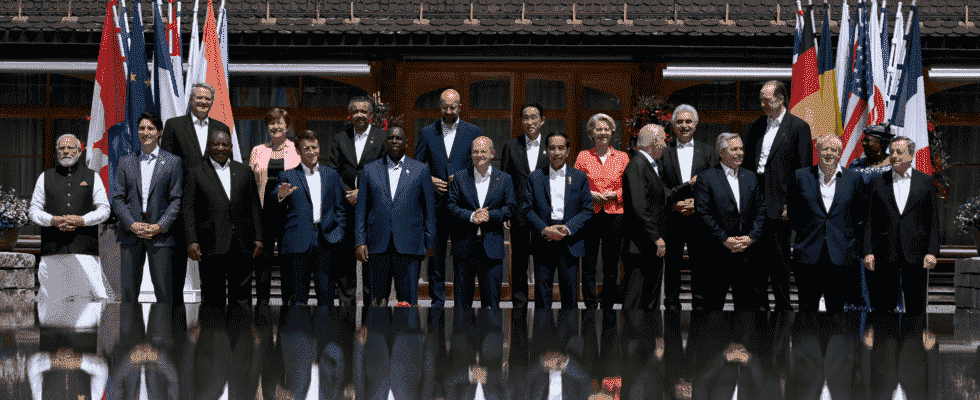Arthur de Laborde
The leaders of the G7 member countries have been meeting since Sunday in Germany to discuss hot topics and international issues. Unsurprisingly, the war in Ukraine was at the heart of the Bavarian Alps’ concerns, with avenues for putting pressure on Russia and its leader Vladimir Putin.
Last day of discussions in Elmau, Bavaria. The G7 summit ends this Tuesday in Germany. A seven-member summit, without Vladimir Putin – the specter of war in Ukraine hung over the traditional annual meeting of the leaders of the greatest powers.
Above all, the G7 leaders promise to continue to support Ukraine in all areas for as long as necessary. They were able to say it directly to President Zelensky with whom they spoke on Monday by videoconference. One track is at the heart of the final negotiations to increase pressure on Moscow and limit the surge in energy prices: capping Russian oil prices on international markets. An idea defended by the United States.
The bombing of a shopping mall in Kremenchuk by Russia is absolute horror. We share the pain of the families of the victims. And anger at such ignominy. The Russian people must see the truth: pic.twitter.com/7drortbGSE
—Emmanuel Macron (@EmmanuelMacron) June 27, 2022
Responding to the energy crisis
If France is not opposed to the framing of oil prices, it underlines that its application is likely to be complex. At the same time, Paris pleads for other means of action in the face of the energy crisis. The Élysée wishes that the producing countries produce more in an exceptional way and pleads for the diversification of the sources of supply, evoking Iranian and Venezuelan oil – two countries currently subject to American sanctions.
Finally, the establishment of an embargo on imports of Russian gold is a consensus: the United States, Great Britain, Canada and Japan have already decided to impose it. The three other European members of the G7 are in favor of such sanctions, but have yet to obtain the approval of the 27.
